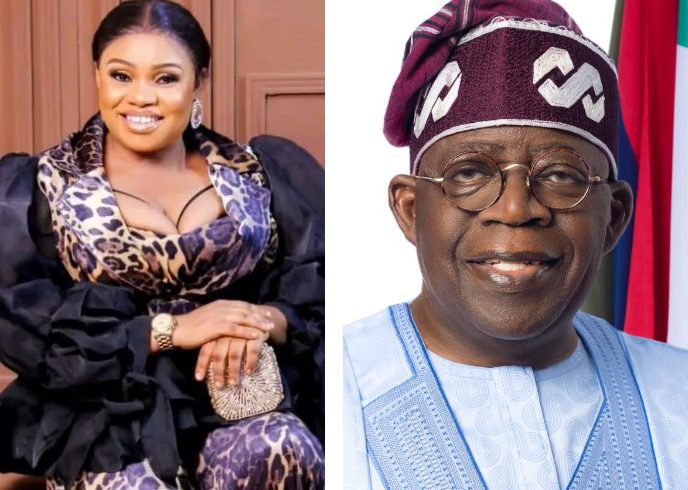Aminatu Pa joins growing list of celebrities regretting Tinubu support

Nollywood Actress Aminatu Papapa Voices Regret Over Tinubu Endorsement Amidst Economic Hardship
Nollywood actress Bukola Adekobe, known popularly as Aminatu Papapa, has publicly expressed regret for supporting President Bola Ahmed Tinubu during the 2023 Nigerian elections. Her statement adds to a growing number of public figures, including other entertainers, who are re-evaluating their political endorsements in light of current economic challenges.
Actress Cites Broken Promises and Worsening Economic Conditions
In an interview on Oyinmomo TV, Aminatu Papapa explained that her initial support for Tinubu stemmed from her admiration for his performance as governor of Lagos State. She believed his track record would translate into positive national development. However, she now views her decision as a significant misjudgment.
"If they asked me what was the only thing I have ever done in my life that I have regretted, it was during that election time," she stated. "That I campaigned for Tinubu really hurts me because the poor are really suffering." Aminatu emphasized that her regret was not driven by social media backlash, but by a personal reflection on the increasing hardship faced by ordinary Nigerians.
Promises Unfulfilled: A Public Apology
Aminatu revealed that she and other supporters were given assurances during private meetings with Tinubu. "Whenever we had meetings with him, he also promised to do well. Later, it was after the elections I had a rethink. What I regret is that we were told that they wanted to renew the hope," she said, referencing the president's campaign slogan.
She offered a public apology to Nigerians, stating, "I am taking this opportunity to plead with all Nigerians, including those who love me and those who do not like me… I am sorry. Even if you have known someone for a long time, you need to check them carefully before believing their words."
Historical Context: Celebrities and Nigerian Politics
The involvement of celebrities in Nigerian politics is not a new phenomenon. For decades, entertainers have used their platforms to endorse candidates and political parties. These endorsements can influence public opinion, particularly among younger voters and fans. However, the relationship between celebrities and politicians has often been fraught with controversy, especially when campaign promises are not fulfilled.
Dr. Nkechi Adebayo, a professor of media studies at the University of Lagos, notes that "Celebrity endorsements in Nigerian politics are powerful tools, but they come with a responsibility. When celebrities lend their names to a candidate, they are essentially vouching for their character and policies. If those policies fail to deliver, the celebrity's reputation can be significantly damaged."
Growing Discontent Among Celebrities
Aminatu Papapa is not the only entertainer expressing regret. Actor Alapini recently voiced his dissatisfaction, claiming he received no recognition or reward for his campaign efforts. He suggested that many other celebrities who publicly supported the president feel similarly overlooked. In 2023, actress Ronke Oshodi Oke also expressed disillusionment with the ruling All Progressives Congress (APC) following the government’s response to the EndSARS protests.
Expert Analysis: The Impact on Public Trust
Political analyst, Mr. Olufemi Taiwo, believes that these expressions of regret from celebrities could erode public trust in political endorsements. "When public figures admit they made a mistake in supporting a candidate, it forces people to question the motivations behind such endorsements," he explains. "Are they based on genuine belief in the candidate's vision, or are they driven by personal gain? This situation highlights the need for greater transparency and accountability in political endorsements."
Celebrity endorsements can sway public opinion. Unfulfilled promises damage both the politician's and the celebrity's reputation. Transparency in political endorsements is crucial for maintaining public trust.
Current Economic Climate Fuels Discontent
Nigeria is currently grappling with soaring inflation, rising unemployment, and increased cost of living. These economic challenges have led to widespread discontent among the population, including those who initially supported the current administration. The removal of fuel subsidies and the devaluation of the naira have further exacerbated the situation, leading to increased hardship for many Nigerians.
Aminatu’s candid admission underscores the growing disconnect between campaign promises and the lived realities of many Nigerians. As economic hardship deepens, more public figures may be compelled to re-evaluate their political stances and speak out against perceived failures of governance.
Originally sourced from: Movie
